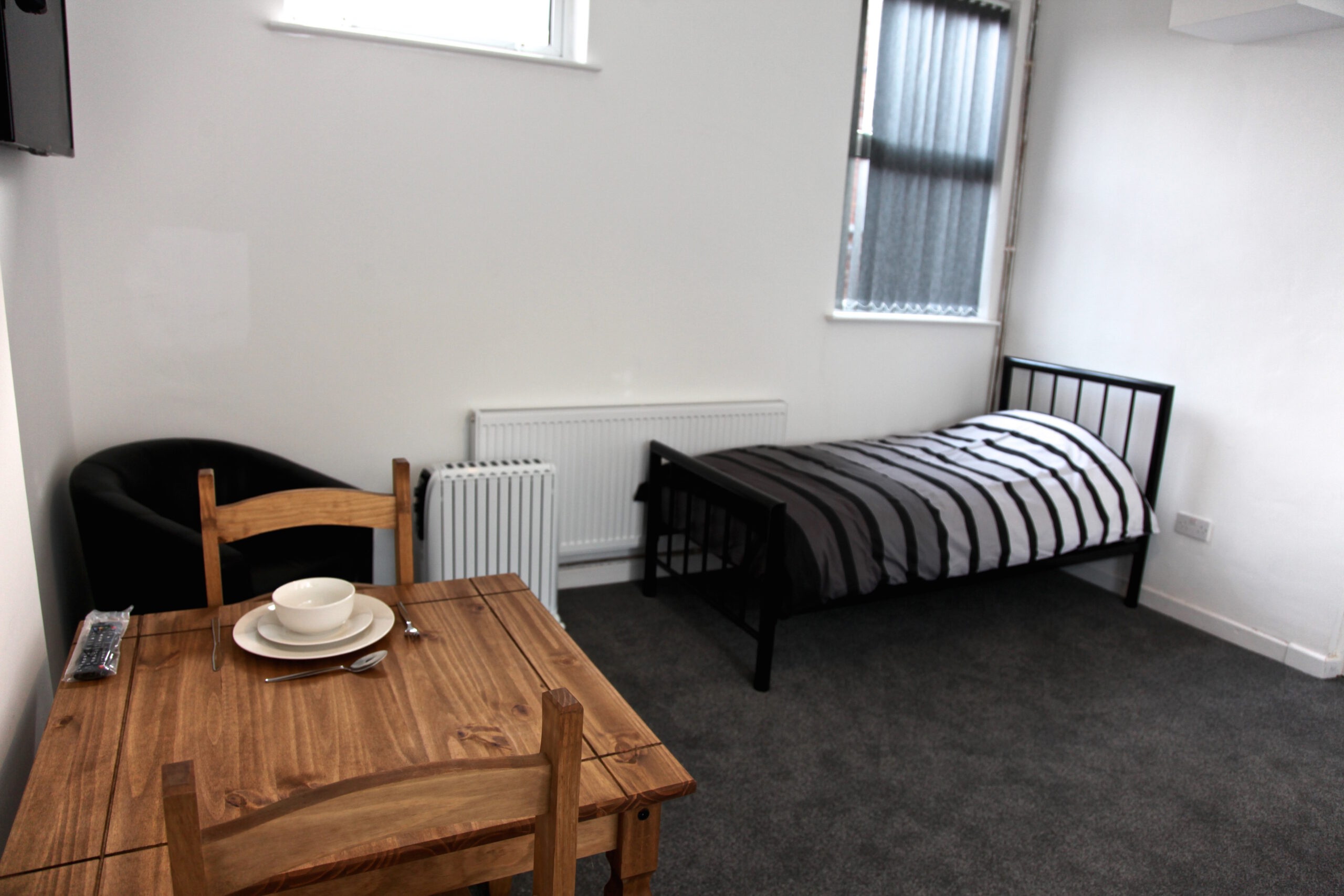
Support worker shares experience of working during outbreak
We asked one of our front-line service workers to talk about what working with people experiencing homelessness has been like during the COVID-19 pandemic.
Isabel works at Mayfield House, our 35 bed hostel in Leicester, as a Trainee Homeless Services Officer and supports the people that live there.
Mayfield House is a hostel for people experiencing homelessness. It’s a place for people to stay until they get their own home. We support a mixture of people, from refugees to rough sleepers, men and women, all from different backgrounds.
People we support have varied needs. Many have mental and physical health issues. For some people it’s just by chance that they have become homeless. It’s a real mix of people.
It’s been quite challenging working at Mayfield over the last week as there have been a lot of changes. Our first concern was that we have a lot of people living in Mayfield and the virus could spread easily throughout the property. We have had a couple of people presenting with symptoms but they self-isolating.
Self-distancing is challenging in a hostel environment but we are doing what we can. We have ensured people are using communal spaces less, separated dining room tables and changed how people queue for dinner.
This week some people, about half the hostel, have been moved into self-contained flats so they can self-isolate and self-distance, which is difficult to do in a hostel setting with a shared dining room and bathrooms.
Most of those that have moved are in University halls accommodation. They each have a studio room with their own bathroom and kitchen. We have to make sure they have everything they need to stay in their new properties, like food parcels. One of my colleagues went to Wilkos to buy pots, pans and bedding for people to use. We want to make sure people have things to do so we are looking at getting hold of things like radios, books and games.
The last week has mainly been about providing emotional support though. People have found it quite distressing, not only having to move but because many of them have underlying health conditions too and are worried about what will happen to them in the future.
We have people who are at high risk because of diabetes, asthma and compromised immune systems. Drug users are at high risk as well. It is also difficult for a lot of people to healthcare access services. Some don’t have phones so can’t ring 111 or 999 in an emergency. We have started to provide people with phones to help with this.
Another cause of anxiety for people is the fact the housing register has been temporarily shut down, so people can’t bid for their own property or make housing applications. It makes people more nervous about the future as they want to move on, especially now when everything is very uncertain.
A lot of people were isolated before this, not having contact with family or friends. We are here for them on the end of the phone to provide support, even if we can’t see people face to face at the moment.
If somewhere like Mayfield House had to close people would need somewhere safe to stay. It would be impossible to self-isolate on the streets and there would be a greater risk of infection alongside the other dangers that come with rough sleeping.
The next few weeks are going to be a challenge and very different to our normal working days. We have to take things as they come, be flexible and keep working to support people in need.
For updates on how best to support us please visit and follow our Facebook and Twitter pages.